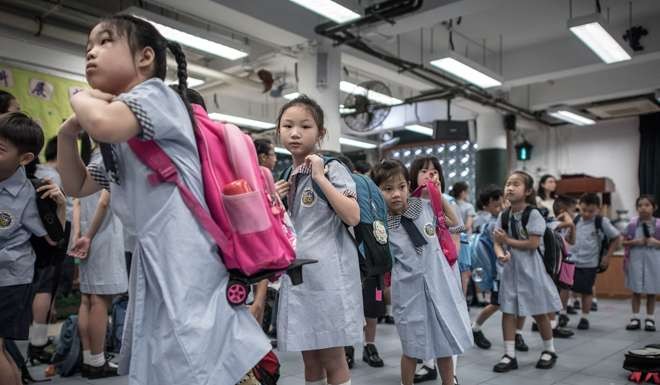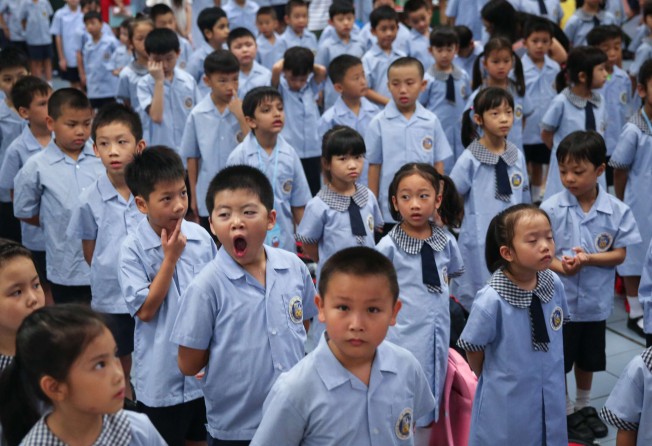
‘Rethink needed’ on Hong Kong Primary One places allocation system as success rate hits new low
Influx of cross-border pupils and rise in birth rate, coupled with ‘inherited applicants’, mean more children unable to secure school of choice

The first round of the primary school places allocation system, which prioritises children with family ties to schools, has come under fire from educators, who say that the scheme needs to be reconsidered as the success rate of such allocations has fallen to a new low in almost two decades.
Only 41.5 per cent of some 57,800 children taking part in the discretionary allocation secured a place in the school of their choice – the lowest in the last 19 years. The success rate last year was 42.6 per cent while in 1997, it was 56.5 per cent.
The discretionary allocation process is the first in two rounds of exercises for schools to fill their Primary One classes. During this round, primary schools will set aside half of their first-year classes for families living in all districts to apply, unlike the central allocation system, where parents can only apply to schools in the same district.
Places are distributed based on a point system, where applicants with family ties to the school of their choice – such as siblings already studying there or parents who are working at the school – will get a place by default. Added to that, such hopefuls – also known as inherited applicants – whose siblings or parents are alumni or board members of the applied schools will get more points, therefore having a greater advantage.
Other points are assigned based on factors such as applicants’ ages, and their family’s connections with the schools’ religious backgrounds or operators.

On a radio programme on Tuesday, education sector lawmaker Ip Kin-yuen and former chairman of the North District Primary School Heads Association Chan Siu-hung, agreed that the point system was why many parents had failed in securing the school of choice for their children.
Chan said in extreme cases, schools needed to use some of the places reserved for the second round of allocation just to accommodate the inherited applicants, thus edging out other applicants in the first round and leaving fewer chances for those in the second round.
Some 12,800 of 24,019 successful applicants got a place via the inheritance system – a 12.5 per cent increase from last year.
Chu Wai-lam, principal of Fung Kai No 1 Primary School in Sheung Shui, said the school only reserved 60 places for discretionary allocation this year, but eventually admitted 72 pupils to cater to inherited applicants.
This means the school will have 12 places fewer for the central allocation exercise in the second round.
“There are more parents who are disappointed with the result,” Chu said.
Addressing the issue on the radio programme, Chan said: “Allowing children to enter schools where their siblings are already studying is natural, because they can take care of each other”. Yet he questioned the prioritising of applicants whose siblings or parents are school alumni.
“But many parents have vested interests in this, so there could be strong opposition if the system is to be changed,” Chan added however.
Ip said although the system needs to be reformed, the government should not ignore the fact that the demand for school places has generally increased, contributed by an influx of cross-border pupils – children born in Hong Kong to mainland parents – and a pick-up in the local birth rate.
The number of primary school applicants this year increased by about 8 per cent from last year.
The influx of cross-border primary school applicants is set to end in 2018 with the government ban on hospitals admitting mainland women who come over to give birth. However Ip said demand for primary school places would still not drop significantly as the local birth rate revival would neutralise the effect.
He urged the government to plan more schools to meet the demand.